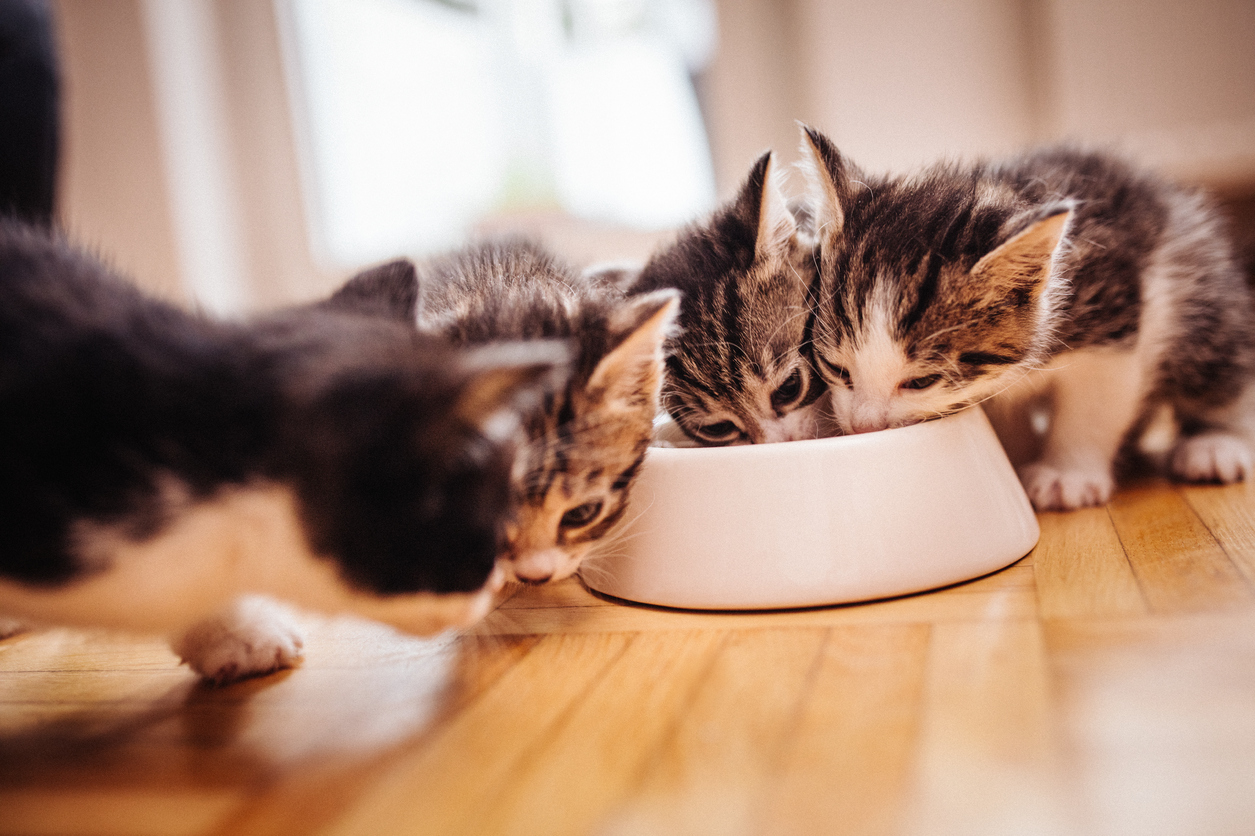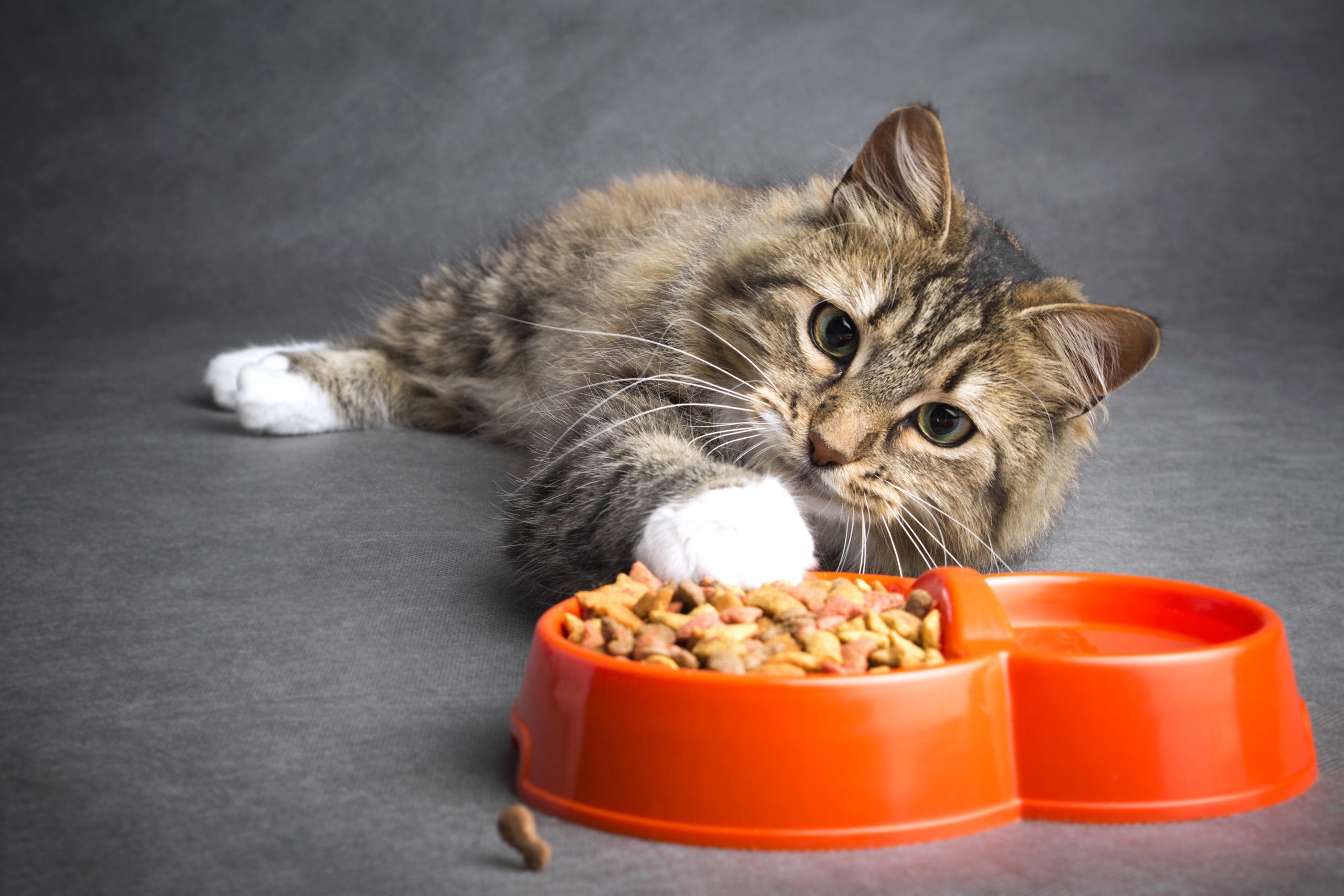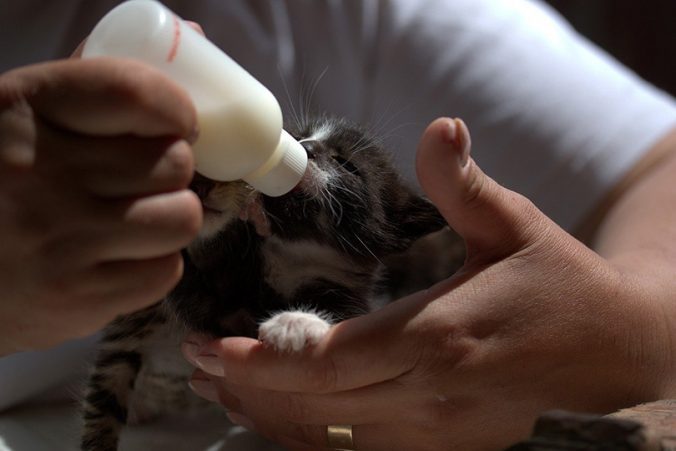This article and https://telegram-store.com/catalog/product-category/channels/animals gives a few practical rules for feeding a kitten. The amount of information on the subject is overwhelming, and the intrusive advertising of cat food can make your head spin. The first thing to do. When you get a kitten, ask the salesperson what he was feeding him, and give your new pet the same or similar food first. A sudden change in diet can lead to digestive problems and diarrhea. You don’t have to buy the same brand of food. Meaning, for example, you don’t have to switch the kitten from wet food to dry food right away. You can add new food to the diet, but do it gradually, mixing in small amounts of new and old food. Feeding your kitten: what you need to do
Feed your kitten special food for kittens
Kittens have very different nutritional needs from adult cats, so it’s especially important to feed them food made specifically for them. Such food should be given to kittens until they reach the age of twelve months.

A litter of kittens from the same family eating healthy cat food from a bowl together on the wooden floor of a kitchen
The food should be varied
There is much debate about what to feed a kitten, and here people have different opinions. But it is certainly best to introduce the kitten to a variety of high quality foods, including wet and dry, as well as cooked meats. Wet food maintains the water balance in the kitten’s body and is thought to reduce the risk of urinary tract infections. Dry food and meat scraps clean kitten’s teeth, reducing tartar buildup and the likelihood of developing dental problems later in life. Also, feeding your kitten a variety of foods at an early age reduces the likelihood of him becoming a finicky kitten whose food will cost you more than your own.
Feed your kitten high-quality food
Feeding your kitten cheap, low-quality food can lead to all sorts of problems later in life. Choosing the best food can be difficult, but good pet stores and veterinary clinics that carry quality brands will probably be able to help you with advice.
Do not feed your kitten much, but often
Kittens have very small stomachs, so you need to feed them small portions 4 or 5 times a day. And make sure that there is always fresh, clean water in the drinker. Feeding the kitten: what not to do The next part of this article will tell you what not to include in the kitten’s diet:
Raw meat
Raw meat is the most common cause of food poisoning, including some pretty serious infections such as salmonellosis. It can be dangerous for a young kitten. Always make sure that the meat you feed your kitten is well processed, has not been in the refrigerator too long, and is not expired.
Vitamins and other supplements
If you feed your kitten high-quality food, that will be enough. An overdose of some supplements can cause health problems.
Liver
Some cats are very fond of liver. They would rather starve it than eat anything else. Large amounts of liver can lead to an overdose of vitamin A, which can cause bone growths on the vertebrae.
Dog food
Cats and dogs have very different nutritional needs. Dog food will not supply your cat with the nutrients it needs and can lead to serious health problems.
Cheap, low-quality cat food
This has been mentioned before, but it’s always best to say it again. Cheap, low-quality cat food can shorten life expectancy and cause health problems. “Buy cheap, pay dear,” is a motto that can be used when it comes to feeding your cat.
Cow’s milk
Feeding your kitten cow’s milk can cause diarrhea. Kittens as young as six months old don’t need milk, it’s more important for them to have fresh, clean water at all times.
